Nursery Staff Meeting Activities: Scenario Analysis and Role-Play

Scenario analysis and role-play exercises are powerful tools for enhancing communication, problem-solving skills, and teamwork among nursery staff members. By simulating real-life situations and allowing participants to practise their responses, these activities promote active learning and help staff members develop confidence in handling challenging situations effectively. In this guide, we'll explore how to conduct scenario analysis and role-play exercises during nursery staff meetings to maximise their effectiveness and extract valuable learning experiences from the provided scenarios.
Scenario Analysis
Identify Relevant Scenarios: Begin by selecting scenarios that are relevant to the daily operations of the nursery and address common challenges or concerns faced by staff members. Our scenarios below provide a diverse range of situations for analysis, covering topics such as parental interactions, medical emergencies, conflict resolution, and more.
Set the Stage: Present the selected scenario to the staff members, providing any necessary background information or context to help them understand the situation. Encourage participants to put themselves in the shoes of the individuals involved and consider the potential implications and outcomes of different courses of action.
Facilitate Discussion: Encourage staff members to discuss the scenario openly, sharing their thoughts, concerns, and proposed solutions. Foster a collaborative environment where everyone feels comfortable expressing their ideas and opinions. Encourage critical thinking and problem-solving skills by asking probing questions and challenging assumptions.
Extract Key Insights: As the discussion progresses, identify key insights and takeaways that emerge from the scenario analysis. Encourage participants to reflect on their own experiences and consider how they would apply the lessons learned to similar situations in their work environment. Highlight any best practices, strategies, or recommendations that arise during the discussion.
Role-Play Exercises:
Assign Roles: Divide staff members into groups and assign roles based on the scenarios provided. Each group will take on the roles of the individuals involved in the scenario, such as staff members, parents, or children.
Act Out the Scenario: Encourage participants to immerse themselves in their assigned roles and act out the scenario as realistically as possible. Encourage improvisation and creativity, allowing participants to explore different perspectives and responses within the context of the scenario.
Facilitate Debriefing: After completing the role-play exercise, facilitate a debriefing session where participants can reflect on their experiences and discuss what they learned. Encourage open and honest feedback, focusing on both the strengths and areas for improvement observed during the role-play.
Extract Learning Points: Identify key learning points and insights that emerged from the role-play exercise. Discuss how the participants' actions and decisions during the role-play aligned with or diverged from best practices and policies. Encourage participants to consider alternative approaches and strategies for handling similar situations in the future.
By conducting scenario analysis and role-play exercises during nursery staff meetings, nursery managers can provide valuable learning experiences for their staff members and foster a culture of continuous improvement and professional development. These activities help staff members develop essential skills, such as critical thinking, communication, and problem-solving, while also enhancing teamwork and collaboration within the nursery setting.
Feel free to use our provided scenarios as a starting point for conducting scenario analysis and role-play exercises in your nursery staff meetings. Tailor the activities to suit the specific needs and objectives of your nursery, and encourage active participation and engagement from all staff members. Together, you can navigate challenges, build confidence, and create a supportive and effective working environment for all team members.
Example Scenarios for Analysis and Role-Play
1. Parent Who Wants to Collect Child But Is Not on the Forms
In this scenario, you are at the reception as a parent enters to collect a child. They are not recognized by any staff, and they do not know the password required for collection. They are not named on the child's file. What should we do?
2. Child Displays Challenging Behaviour During Group Activity
During a group activity, one of the children begins to exhibit challenging behaviour, such as hitting or biting other children. How should the staff members handle this situation while ensuring the safety and well-being of all children involved?
3. Medical Emergency
A child falls and sustains a head injury while playing outside. The child is bleeding and needs immediate medical attention. What steps should staff members take to address the emergency and ensure the child receives appropriate care?
4. Conflict Between Staff Members
Two staff members have a disagreement during a staff meeting, leading to tension and conflict between them. How should nursery management address the conflict and facilitate a resolution while maintaining professionalism and teamwork?
5. Concerned Parent Raises Issue About Teaching Methods:
A parent expresses concern about the teaching methods used in the nursery, stating that they feel their child is not making progress. How should staff members respond to the parent's concerns and address any potential issues with teaching methods?
6. Emergency Evacuation Drill
During an emergency evacuation drill, one of the children becomes frightened and refuses to leave the building. How should staff members handle the situation and ensure the safety of all children during the evacuation?
7. Child Discloses Concerning Information About Home Life
A child confides in a staff member, sharing concerning information about their home life, such as witnessing domestic violence or neglect. How should staff members respond to the child's disclosure while ensuring their safety and well-being?
8. Parent Requests Special Accommodations for Child's Dietary Needs
A parent requests special accommodations for their child's dietary needs, such as a gluten-free or dairy-free diet. How should nursery staff members accommodate the parent's request while ensuring the child's nutritional needs are met?
9. Staff Member Observes Another Staff Member Engaging in Unsafe Practices
A staff member observes another staff member engaging in unsafe practices, such as leaving hazardous materials within reach of children or failing to properly supervise them during outdoor play. How should the observing staff member address the situation and ensure the safety of the children?
10. Child Exhibits Signs of Emotional Distress
A child displays signs of emotional distress, such as frequent crying, withdrawal, or aggressive behaviour. How should nursery staff members identify the underlying cause of the child's distress and provide appropriate support and intervention?
Explore our related articles for further guidance on staff meeting planning and activities:
Other Articles
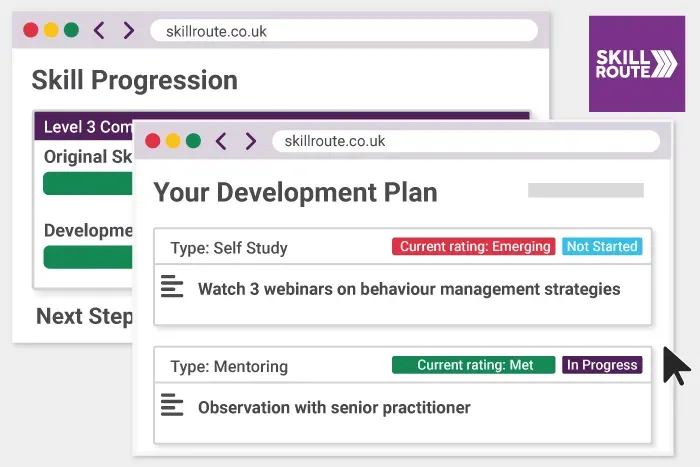
Can My Level 2 Staff Be Left Alone with Children? (2025 Ratio Rules Explained)
May 21, 2025

Understanding Ofsted's New Experience-Based Route for Early Years Staff
February 5, 2025
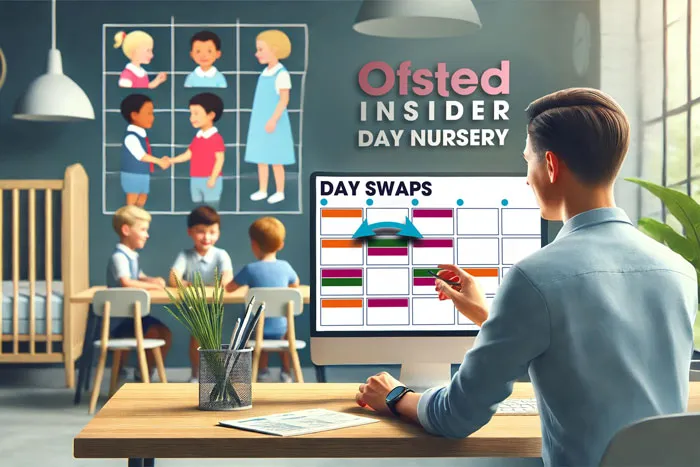
Are Day Swaps a Good Idea for Your Nursery? A Guide for Owners and Managers
December 11, 2024

Ofsted’s Grading Changes: Impact on Nurseries
September 3, 2024
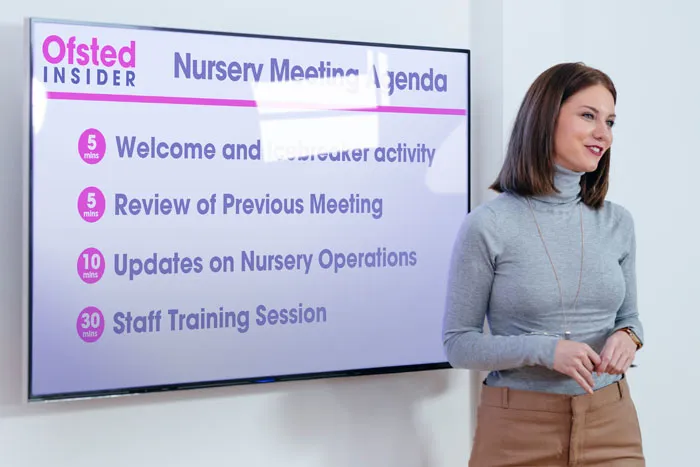
How to Write a Staff Meeting Agenda for Nursery Settings
June 18, 2024
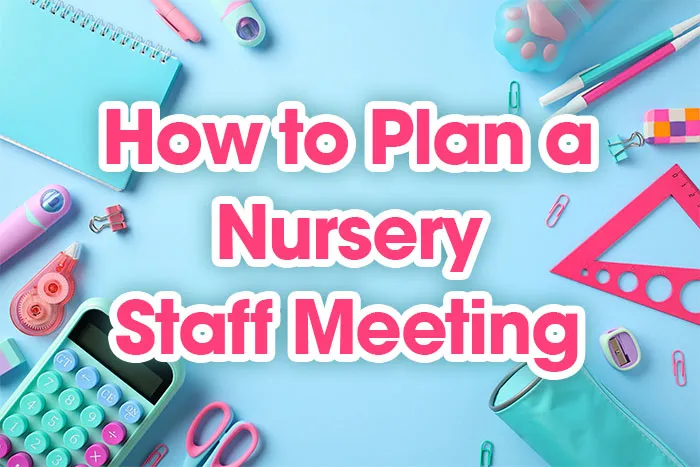
How to Plan a Nursery Staff Meeting
June 18, 2024

Boosting Parent Partnership: 10 Strategies for Nursery Success
May 10, 2024

EYFS 2024: What's Changing? Find out and take the quiz!
November 25, 2023

White Noise for Sleeping Babies: Pros, Cons, and Tips
October 24, 2023

Common Ofsted Questions Answered: A Summary for Early Years Professionals
October 12, 2023
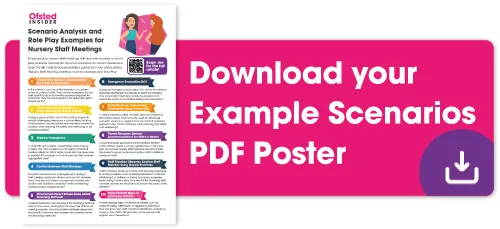
 © Copyright 2021 - 2025. All rights reserved.
© Copyright 2021 - 2025. All rights reserved.